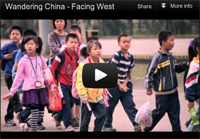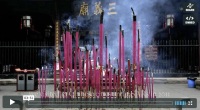Most economists anticipate China’s gross domestic product (GDP) growth to reach 9.5 percent this year but drop to 8.5 or 8 percent next year.
– – –
Tougher measures to cool property market
By Hu Yuanyuan (China Daily)
Source – China Daily, published September 30, 2010
Increase in down payments and new tax aim to curb rising prices
BEIJING – New measures to curb rising real estate prices, including raising down payments for home purchases and expanding property tax trials nationwide, were launched on Wednesday highlighting the government’s resolve to cool the property market.
Homebuyers purchasing their first apartment now need to pay at least 30 percent down payment, instead of the previous 20 percent, according to an article on the government’s official website, http://www.gov.cn.
The requirement for second property purchasers was also raised to at least 50 percent from 40 percent. Read the rest of this entry »
Filed under: China Daily, Chinese Model, Domestic Growth, Economics, Government & Policy, Politics, Population











The Sharing Circle